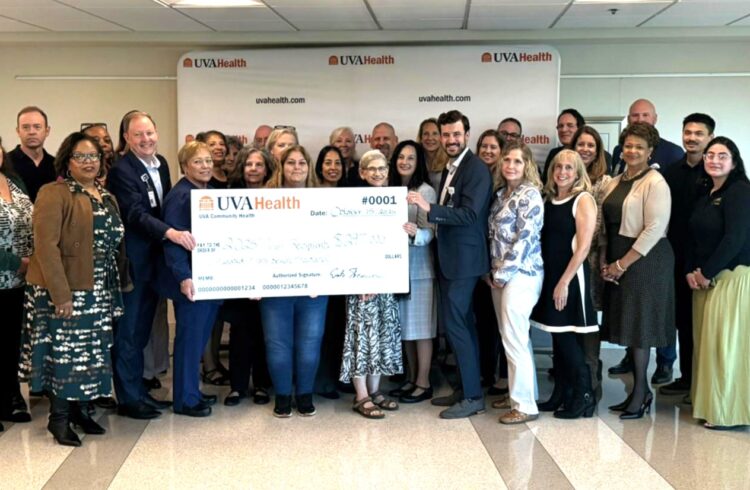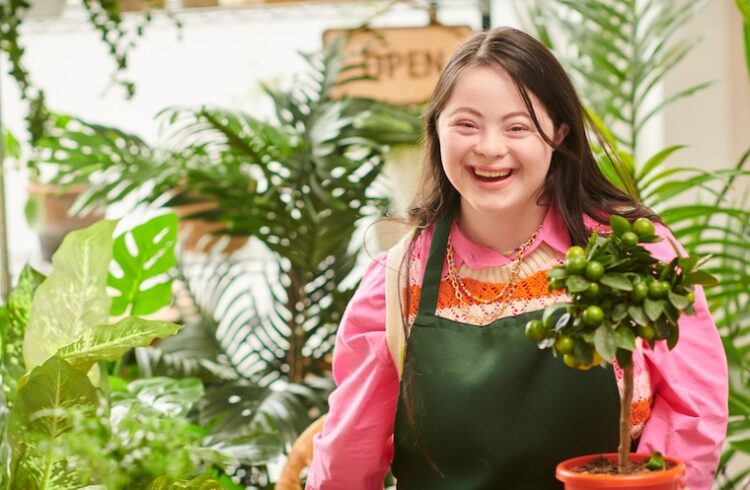
Adults with chronic kidney disease are less likely to eat fruits and vegetables than similar people without the disease, according to new University of Virginia School of Medicine research, though the study found that many Americans eat few fruits and vegetables.
The researchers analyzed data on eating patterns of fruits and vegetables from three cycles of the National Health and Nutrition Examination Survey conducted between 1988 and 2018. After adjusting for demographics, waist circumference and the presence of diabetes and high blood pressure among survey participants, the scientists found that patients with chronic kidney disease (CKD) were consistently more likely to have an eating pattern that included fewer fruits and vegetables than people without the condition.
In the first survey cycle (1988-94), 51.83% of patients with CKD were classified in a pattern with low intake of fruits and vegetables, compared with 47.66% of people without the disease. In the second survey cycle (2003-10), 46.26% of patients with CKD were classified in the low intake pattern, compared with 40.88% of people without the condition. In the final survey cycle (2011-18), 47.87% of patients were classified in the low intake pattern, compared with 45.76% of people without the disease.
“Consuming more fruits and vegetables is strongly linked to health in many different diseases,” said UVA Health kidney specialist Julia J. Scialla, MD, MHS. “We worry about overall health effects when we see patients with CKD consuming low levels of fruits and vegetables. We have to be careful not to unnecessarily discourage healthy fruit and vegetable intake when we provide nutritional advice to patients with CKD, such as advice to reduce potassium intake.”
Protecting Against Chronic Kidney Disease
Better understanding the possible risk factors for chronic kidney disease is critical, as the condition is widespread among Americans and carries significant health risks. According to the U.S. Centers for Disease Control and Prevention, approximately 37 million American adults have chronic kidney disease, which occurs when the kidneys are damaged and are unable to effectively filter waste from a person’s blood, potentially leading to high blood pressure, heart disease and stroke.
More studies are needed to determine whether the low intake of fruits and vegetables is a cause or result of chronic kidney disease, or if other factors play a role. While patients with CKD may receive recommendations to reduce their consumption of potassium – a mineral commonly found in fruits and vegetables – the health benefits of this are not known and need further study.
The UVA research team recommends not only more studies to better understand the link between fruit and vegetable consumption and chronic kidney disease but to figure out how to get all Americans to eat more fruits and vegetables.
“We hope that through this study and similar studies we would be able to encourage both healthy individuals and patients with chronic kidney disease to reconsider their intake of fruits and vegetables by incorporating greater varieties and amounts of unprocessed or minimally processed fruits and vegetables into their everyday diets,” said Shirin Pourafshar, PhD, MSCR, RDN, a nutritionist and dietitian who co-authored the study.
Findings Published
The researchers have published their findings in the Journal of Renal Nutrition. The research team included Shirin Pourafshar, Binu Sharma, Sibylle Kranz, Indika Mallawaarachchi, Elizabeth Kurland, Jennie Z. Ma and Scialla. The work was funded by the National Institutes of Health’s National Institute of Diabetes and Digestive and Kidney Diseases, grant T32 DK072922.



